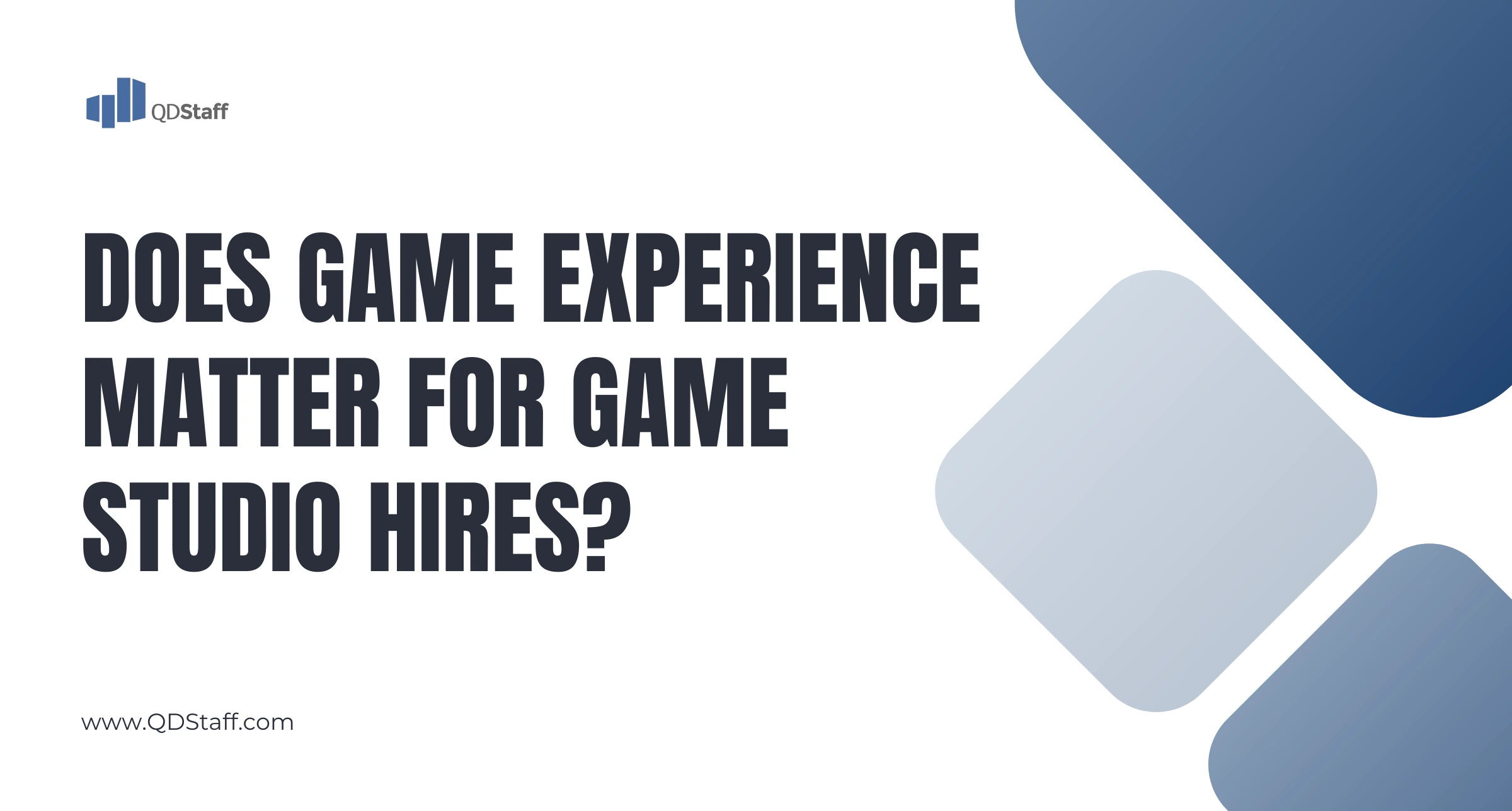Industry Experience Results in Better Games
Industry experience is the ticket to building better teams, faster game delivery, and reducing costs. It also promotes team longevity, supports scalable production, and helps lower recurring costs. While industry experience does not guarantee success, it is both a catalyst for greatness and a mitigation for innumerable risks.
Hit games require an innate understanding of the unique rhythm, workflow, and challenges of game production as well as the psychology and demands of the target market. Professionals with gaming expertise bring this crucial insight, enabling them to deliver value more quickly, operate more cost-effectively, and remain deeply committed to the craft. The requirement for industry expertise becomes even more critical in niche segments like casino games, where expertise must align with highly specific mechanics, compliance requirements, and player expectations. Hiring from outside the industry risks costly delays and steep learning curves. For hiring managers in this specialized field, the message is clear; industry expertise has such an impact on results that it is worth the wait and expense to get the right team “on the bus”.
Fast Time-to-Value
Time to value is the most important measure of new hires for game studios. While the impact of open seats takes a toll on the team in terms of greater workloads, the impact of a bad hire can be much worse, even counterproductive.
Industry hires generate value quickly and mitigate the cost of new team members on productivity:
- Meeting Tight Deadlines: With minimal learning curves, experienced professionals help companies meet aggressive timelines and deliver high-quality results on time
- Low Drag on Current Team: The learning speed associated with industry familiarity creates significantly less impact on the existing team and current delivery timelines.
- Immediate Task Ownership: Veterans can take on tasks like asset creation, gameplay balancing, and feature implementation without delay.
- Reduced Training Time: Proficiency with tools like Maya, Blender, and JIRA enables them to adapt quickly to a studio’s processes.
- Quick Adaptation to Workflows: Experience with collaborative platforms and version control systems like Git and Perforce allows them to work effectively from the start.
By contributing quickly, game industry veterans help companies realize a faster return on hiring, whether through quicker feature implementation or more efficient problem-solving.
Stronger, More Loyal Teams
Hiring industry veterans fosters team stability, loyalty, and cohesion, all of which are critical to long-term success in game development. Retention of this talent is a significant factor in maintaining team productivity and morale as gaming professionals are often deeply invested in their work, driven by a personal passion for the industry. These industry veterans often exhibit greater commitment. They tend to take on leadership and mentorship roles, sharing their expertise and fostering a culture of collaboration.
- Intrinsic Motivation: Many gaming professionals are gamers themselves, creating a strong alignment between their personal interests and professional goals.
- Emotional Investment: Their passion translates into creativity, collaboration, and a commitment to project success.
- Staying Through Crunch Periods: Industry veterans understand and accept the high-pressure phases of game development, such as pre-launch crunch times.
- Career Stability: Many see gaming as a lifelong career, reducing turnover and fostering team continuity.
- Mentorship and Growth: By guiding junior staff, they enhance the skill level and confidence of the entire team.
- Cross-Functional Collaboration: Their ability to work seamlessly across diverse departments improves project cohesion.
Lower Ongoing Costs
Veterans of the gaming industry require minimal onboarding compared to newcomers, as they are already familiar with essential tools, workflows, and company culture. Mistakes in game development can lead to delays, inflated budgets, and damage to a studio’s reputation. Industry veterans are less likely to make costly errors.
- Technical Proficiency: These professionals bring hands-on experience with platforms like Unity, Unreal Engine, and proprietary game engines, minimizing the need for training.
- Pipeline Speed: They seamlessly integrate into the fast-paced and collaborative work environment typical of game studios.
- Higher Quality Outputs: Experienced professionals reduce the risk of bugs, design flaws, and other inefficiencies.
- Self-Policing: Veterans know when their work product is not up to standards and, the right hires, will address the issues on their own
- Revenue Protection: By ensuring polished releases, veterans mitigate risks of negative reviews, refunds, or brand damage.
- Compatible Salary Cost: Game industry team members understand the pay scales of the game industry and are inspired by building great products in the niche
Pitfalls of Experienced Non-Industry Hires
While hiring experienced talent from outside the game industry can bring fresh perspectives, this approach should be used strategically. In many cases, the challenges it presents outweigh the potential benefits.
- Difficulty with Iterative Development: Non-industry professionals may struggle with the flexible and dynamic timelines of game development.
- Limited Flexibility: Rigid processes from other industries may not translate well to the creative and experimental nature of gaming.
- Lack of Insights: Without a deep understanding of player preferences, behaviors, and subcultures, these hires risk creating products that fail to resonate with players.
- Unfamiliarity with Trends: Key trends like esports, live streaming, and user-generated content may be unfamiliar to those outside the industry, limiting their ability to innovate.
- Risk of Misalignment: Gameplay mechanics, visual styles, or narratives created by non-industry hires may fail to meet audience expectations.
Game Production Problems are Recruiting Problems in Disguise
It would be easy to offer pithy advice regarding the emphasis of industry experience in hiring and participation in industry events, but these are arbitrary attempts to mitigate the problem, unbefitting an organization that views game production is a systematic manageable process.
When you combine a high-quality managed process with a low-quality random process, you diminish the quality of the managed process. Therefore, the systematic solution is to implement a talent acquisition process that builds a pool of game industry-experienced candidates from which the best can be selected. Processes that rely on job postings or “who you know” typically yield a limited number of candidates. This inability to build a substantial pool of game-experienced talent often causes teams to look outside the game industry. Unfortunately, this inferior option compromises the quality of the game production process without addressing the root cause.
Here is what you need to do:
- Trust your judgement regarding the requirements you want for your hires and do not compromise without considering the potential impact on game quality and team culture. Lowering your standards when you know what works is as bad an idea as it sounds.
- Educate leadership on the true cost of bad hires and the importance of investing in talent acquisition rather than facing the 10x-100x cost of future quality, cost, or delivery issues.
- Engage game studio experts to bolster your talent acquisition efforts. Talent acquisition weaknesses lead to game production weaknesses.
In an industry as complex and competitive as gaming, hiring decisions can make or break a studio’s success. The financial, operational, and cultural benefits of hiring game industry veterans are clear: they reduce costs, minimize errors, and foster team stability. If your goal is to create exceptional games, start refining your hiring strategy today. Build teams that combine passion, experience, and creativity to thrive in this ever-evolving industry.
Looking to build a winning team? QD Staff works exclusively with game studios advising on team building and introducing the top industry talent. With almost 10 years in game studio talent and a client base of 25 game studios, there is no other team so deep and strong in studio talent. That is why we count world leading studios as clients.
Follow QDStaff on LinkedIn for more insights on building award-winning game studios.




